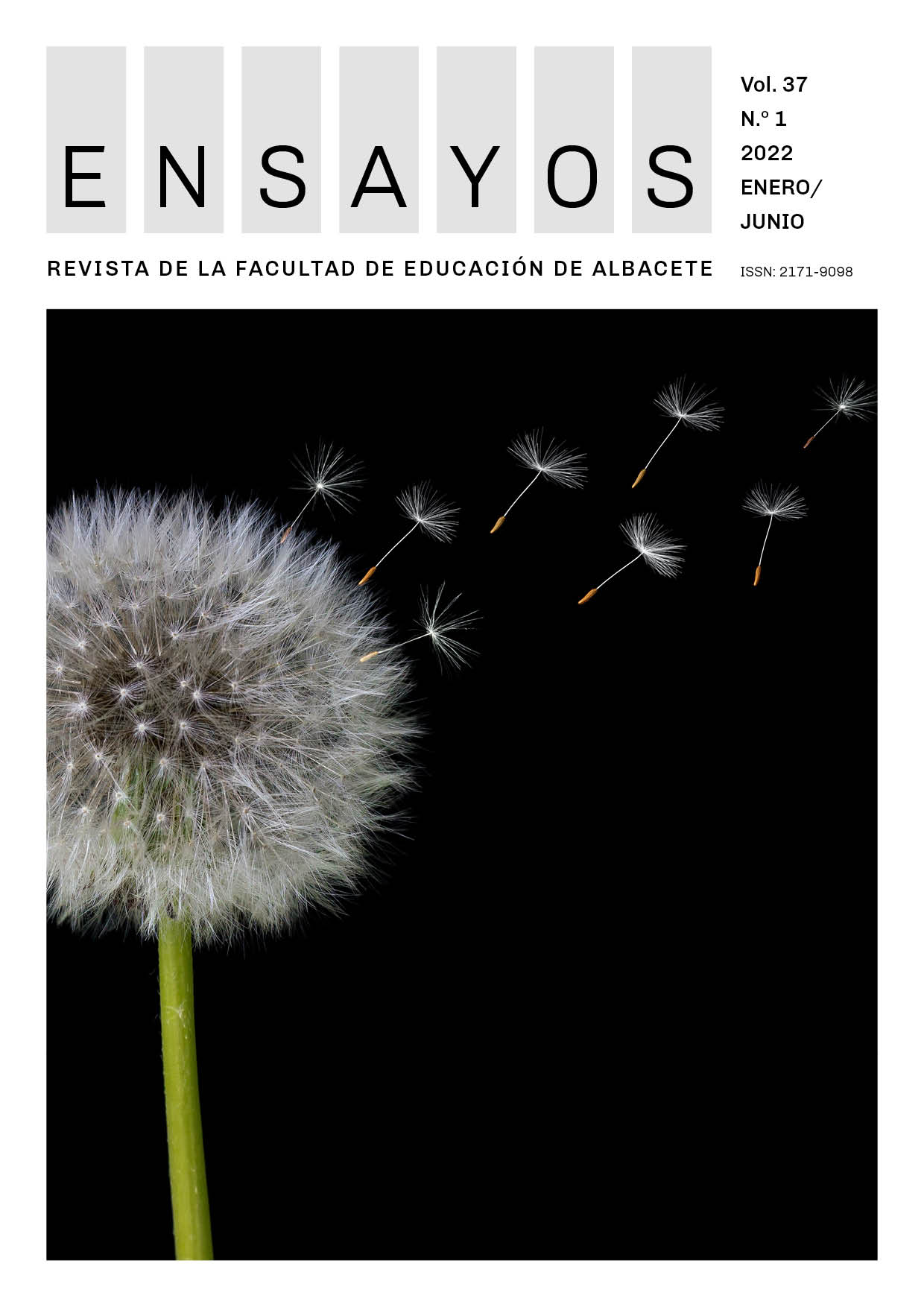El pluralismo epistemológico y la pedagogía libertaria como principios para la enseñanza universitaria
[Epistemological pluralism and libertarian pedagogy as principles for university teaching]
Keywords:
Pluralismo epistemológico; Pedagogía libertaria; Autonomía; Libertad; Autoridad racional.Abstract
This study deals with a quasi-experimental pedagogical intervention carried out at the Federal University of Bahia, Brazil. Epistemological pluralism and libertarian pedagogy have been established as structural pillars in order to collectively build educational processes that attend to all the diversity present in the classroom. In the classrooms there is an epistemological diversity that cannot be addressed solely from the knowledge of the teacher, but he must recognize his ignorance about the epistemological construction of his students to open the dialogue and build an educational process that adapts to the students. The intervention was carried out during a semester in the Curriculum subject with a total of 25 students. Regarding the methodology, it means that the technique used for data collection has been the discussion groups, with a total of 2 different groups. We must bear in mind that the methodological paradigm is qualitative, therefore, the object of our research is not the generalization of results to other contexts, but to rigorously verify and analyze the phenomena evidenced in the context in which we carry out the study. One of the results to take into account is one that reveals the importance of autonomy in order to adapt the educational process to the characteristics of the students. As a noteworthy conclusion to mean that the implementation within educational spaces of epistemological pluralism and libertarian pedagogy has positive effects on the democratic and pedagogical dimensions.
References
Bakunin, M. (2000). Deus e o Estado. Imaginário.
Barroso Tristán, J. M. y González-Monteagudo, J. (2018). Perspectivas de estudiantes universitarios sobre autoridad, ética e ideología docente en Brasil. Perfiles Educativos, 40(161), 69-86. https://doi.org/10.22201/iisue.24486167e.2018.161.58518
Barroso Tristán, J. M. y Trujillo Vargas, J. J. (2021). Conflicto epistemológico, autoridad e implicaciones educativas. Una investigación cuasiexperimental comparativa. En O. Buzón-García, C. Romero-García y A. Verdú Vázquez (Coords.). Una investigación en el aula universitaria. Innovaciones metodológicas con TIC en educación (pp. 1656-1684). Dykinson.
Bourdieu, P. y Passeron, J. C. (1996). La reproducción. Elementos para una teoría del sistema de enseñanza. Laia.
Chomsky, N. (2012). La (des)educación. Austral.
Cook-Sather, A. y Felten, P. (2017). Ethics of academic leadership: Guiding learning and teaching. En F. Su y M. Margaret
Wood (Coords.). Cosmopolitan perspective on academic leadership in Higher Education (pp. 175-192). Bloomsbury.
Cuevas Noa, F. J. (2014). Anarquismo y educación. La propuesta sociopolítica de la pedagogía libertaria. Fundación Anselmo Lorenzo.
Díez Gutiérrez, E, J. (2019). Naturalizar la ideología neoliberal: educar en el habitus capitalista. Estudios de Derecho, 76(168), 221-239. https://doi.org/10.17533/udea.esde.v76n168a09
Feyerabend, P. K. (1984). Adiós a la razón. Tecnos.
Feyerabend, P. K. (1985). ¿Por qué no Platón? Tecnos.
Feyerabend, P. K. (1987). Contra el método. Ariel.
Feyerabend, P. K. (1998). La ciencia en una sociedad libre. Siglo XXI.
Foucault, M. (1979). Microfísica del poder. La Piqueta.
Freire, P. (1983). Educação e mudança. Paz e Terra.
Freire, P. (2005). Conscientização. Teoria e prática da libertação. Centauro.
Freire, P. (2007a). Pedagogia da esperança. Um reencontro com a Pedagogia do oprimido. Paz e Terra.
Freire, P. (2007b). Pedagogía del oprimido. Siglo XXI.
Fromm, E. (1986). La condición humana actual. Paidós.
Gallo, S. (2007). Pedagogia libertária: anarquistas, anarquismos e educação. Imaginário.
Gil Flores, J., García Jiménez, E. y Rodríguez Gómez, G. (1994). El análisis de los datos obtenidos en la investigación mediante grupos de discusión. Enseñanza & Teaching: Revista Interuniversitaria de Didáctica, 12, 183-199.
Hare, W. (2003). The ideal of open-mindedness and its place in education. Journal of Thought, 38(2), 3-10.
Hare, W. (2006). Why open-mindedness matters. Think, 5, 7-16.
Kidd, I. J. (2013). Feyerabend on Science and Education. Journal of Philosophy of Education. 47(3), 407-422. https://doi.org/10.1111/1467-9752.12009
Krueger, R. (1991). Focus groups: A practical guide for applied research. Sage.
Krueger, R. y Casey, M. A. (2000). Focus Groups. A practical guide for applied research. Sage.
Martínez, M., Buxarrais, M. R. y Esteban, F. (2002). La universidad como espacio de aprendizaje ético. Revista Iberoamericana de Educación, 29, 17-43.
Miles, M. y Huberman, M. (1984) Qualitative data analysis. A sourcebook of new methods. Sage.
Moreira, A. F. y Candau, V. M. (2003). Educação escolar e cultura(s): construindo caminhos. Revista Brasileira de Educação, 23, 156-168.
Moriyón, F. G. (1986). Escritos anarquistas sobre educación: Bakunin, Kropotkin, Mella, Robin, Faure, Pelloutier. Zero.
Müller, F. L. (2001). Educação em Feyerabend. Educação e Filosofia, 15(30), 35-52.
Prieto Parra, M. (2005). La participación de los estudiantes: ¿Un camino hacia su emancipación? Theoria, 14(1), 26-36.
Regner, A. C. (1994). Feyerabend / Lakatos: adeus à razão ou construção de uma nova racionalidade? En V. Portocarrero (coord.). Filosofia, história e sociologia das ciências: abordagens (pp. 103-131). FIOCRUZ.
Rodríguez-Romero, M. (2020). Investigación educativa, neoliberalismo y crisis ecosocial. Del extractivismo a la reciprocidad profunda. REICE. Revista Iberoamericana sobre Calidad, Eficacia y Cambio en Educación, 18(2), 135-149. https://doi.org/10.15366/reice2020.18.2.007
Siegel, H. (2005). Truth, thinking, testimony and trust: Alvin Goldman on epistemology and education. Philosophy and Phenomenological Research, 2, 345-366.
Taibo, C. (2015). Repensar la anarquía. Acción directa, autonomía, autogestión. Catarata.
Torres Santomé, J. (2017). Políticas educativas y construcción de personalidades neoliberales y neocolonialistas. Morata.
Downloads
Published
Issue
Section
License
Copyright (c) 2022 ENSAYOS. Revista de la Facultad de Educación de Albacete

This work is licensed under a Creative Commons Attribution-NonCommercial-NoDerivatives 4.0 International License.
Ensayos. Revista de la Facultad de Educación de Albacete conserva los derchos patrimoniales (copyright) de las obras publicadas, y favorece y permite la reutilización de las mismas bajo la licencia de Creative Commons Reconocimiento-NoComercial-SinObraDerivada 4.0 Internacional. Se pueden copiar, usar, difundir, transmitir y exponer públicamente, siempre que: i) se cite la autoría y la fuente original de su publicación (revista, editorial y URL de la obra); ii) no se usen para fines comerciales; iii) se mencione la existencia y especificaciones de esta licencia de uso.



